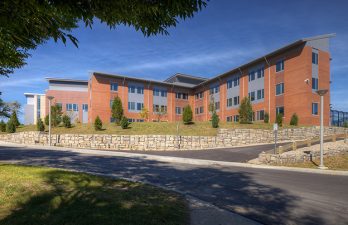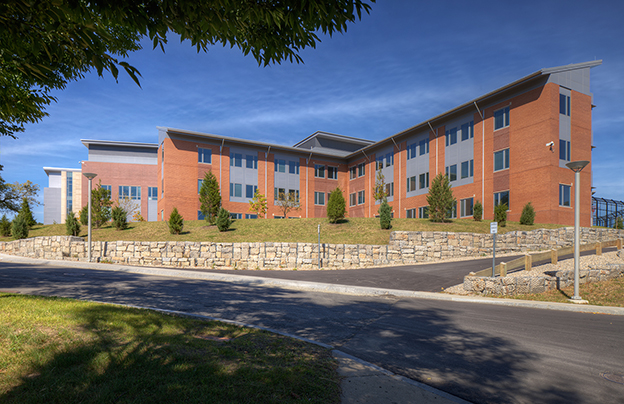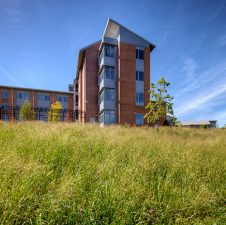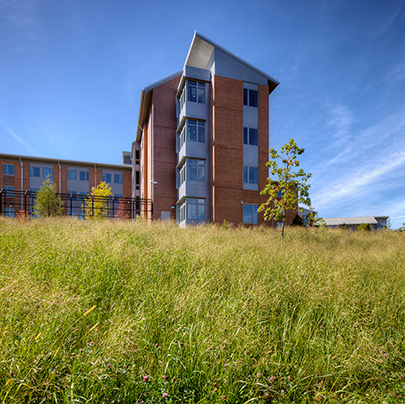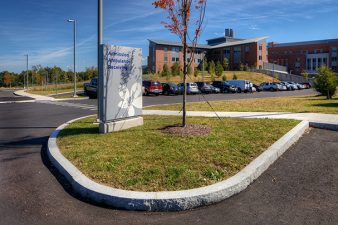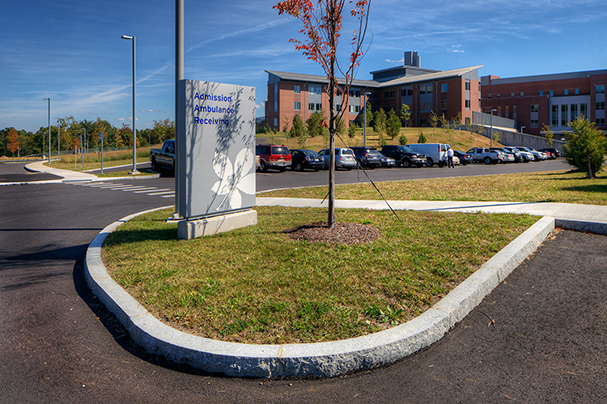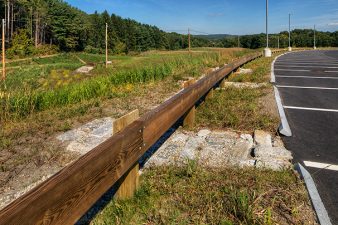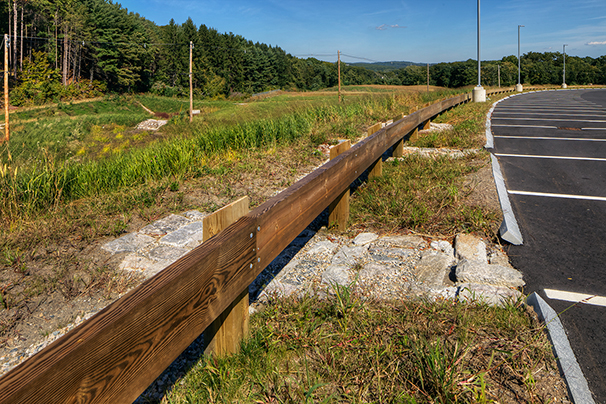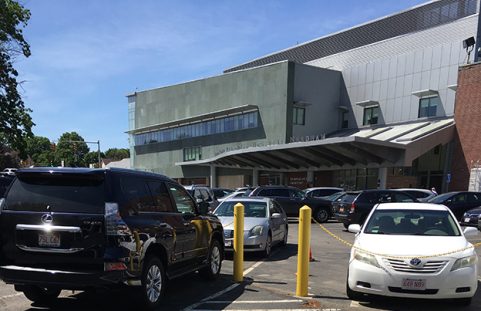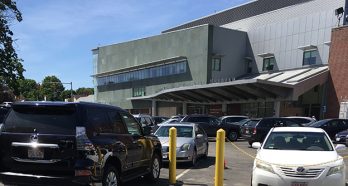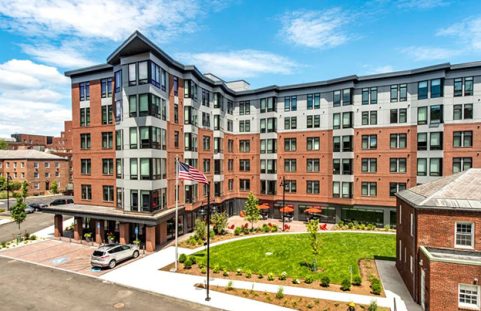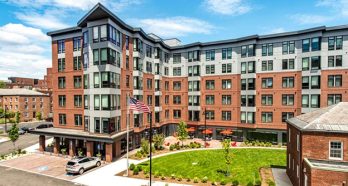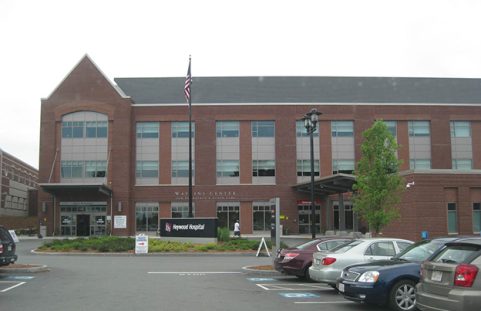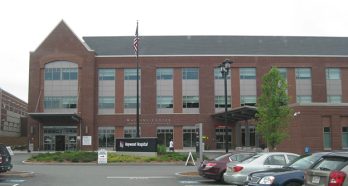The 428,000-square-foot LEED Gold recovery center and hospital provides a state-of-the-art therapeutic environment that helps patients transition to independent living in the community. The facility includes a 260-bed adult hospital, a 30-bed adolescent inpatient facility, and 30 adolescent intensive residential treatment beds, allowing the Department of Mental Health (DMH) to close two out-of-date facilities.
Nitsch was part of the team that evaluated two potential sites for the new DMH facility. We developed a report that summarized each site’s history, location and condition, topography, zoning and regulatory constraints, utilities (i.e., water, sanitary, stormwater, electrical, steam, gas, and telephone/cable), landscape, vehicle and pedestrian access, public transportation access, parking facilities, and environmental regulations and issues. Nitsch performed a full site survey, including property line and topographic, for the selected site.
In addition to working with the design team during the study phase, Nitsch provided utility design, layout, and grading for the building and site; we also designed a stormwater management system, including water re-use strategies and a surface drainage feature. Drainage swales were built into meadow slopes to reduce runoff velocity, prevent erosion, and provide water quality treatment. The drainage conveyance swales, retention basin, and gabion retaining walls were built with stones from the formerly demolished old psychiatric hospital. We prepared early site packages for a boiler plant to facilitate the construction demolition schedule, and prepared an earthwork/ utilities site package to accommodate the fast-track schedule of the project. Nitsch also provided construction administration services and performed an as-built survey.
The project was built under DCAMM’s Construction Management at Risk model.
Key Collaborators
Owner: Massachusetts Division of Capital Asset Management and Maintenance
Architect: Ellenzweig

